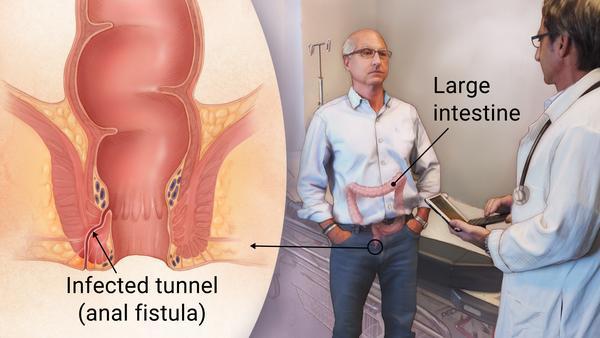ANAL FISTULA

A fistula is an abnormal passageway or tube between two or more body parts that are not normally joined together. Fistulas can occur in the digestive, urinary and reproductive tracts, and in the circulatory system. Fistulas can be a congenital condition, meaning that they develop in utero, or they can develop in the body because of disease, infection, surgery, or injury.
An anal fistula is a small channel that can develop between the end of the bowel and the skin near the anus. An anal fistula can cause bleeding and discharge when passing stools, and can be possibly painful. An anal fistula can occur after surgery to drain an anal abscess.
In some cases, an anal fistula causes persistent drainage. In other cases, where the outside of the channel opening closes, the result may be recurrent anal abscesses. The only cure for an anal fistula is surgery.
The quite likely symptoms include: consistent pain, throbbing and worse when sitting down, skin irritation around the anus, including swelling, redness and tenderness; discharge of pus or blood, constipation or pain associated with bowel movements and fever. A laser surgery at VSLC is the only treatment that will close the anal fistula.